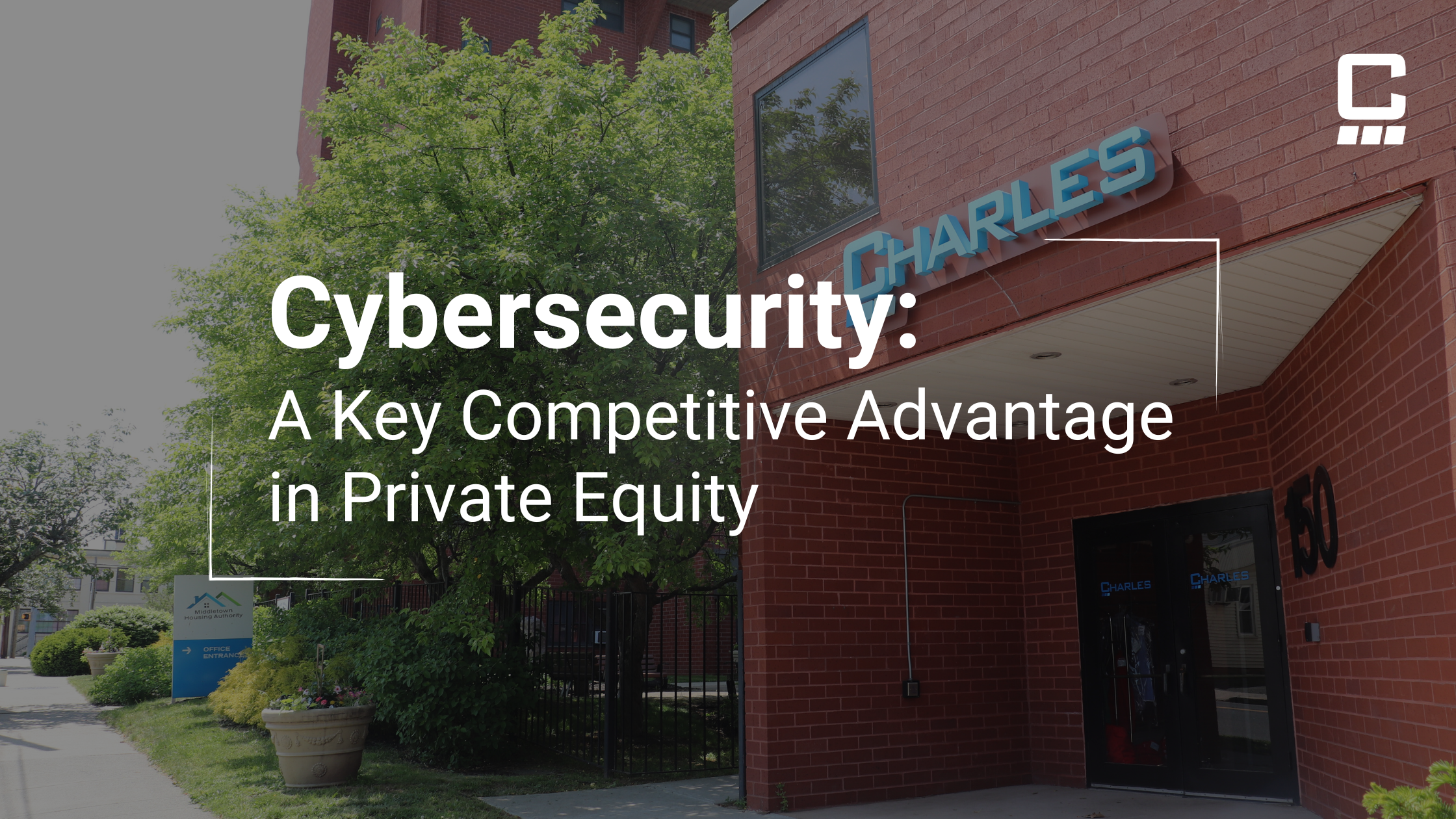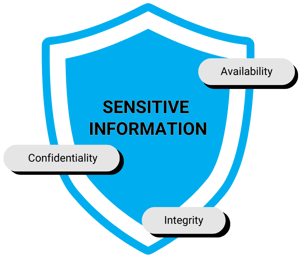
Private equity firms face numerous cybersecurity risks when investing in and acquiring companies. It's no surprise that cybersecurity is a major concern for them.
A strong cybersecurity posture can be a key competitive advantage for private equity firms. It helps to protect your data, your investors, and your reputation. It can also help to attract and retain top talent.
Now that we know what it can do, let's discuss more about why PE firms should see investing in cybersecurity as a key advantage and why it's important for new SEC compliance regulations.
Why Cybersecurity is Important for Private Equity Firms
While there are many reasons we can talk about, below are a few of the most important ones that we've selected for today.
To protect data and assets.
In the era of digitalization, data is an invaluable asset that can provide a competitive edge, boost marketing, and enable informed decision-making. However, protecting this data from unauthorized access, misuse, or disclosure is critical. Common cyber crime attempts include ransomware and phishing, and do you know the most common motive behind attacks in the finance sector? You guessed it - financial gain. According to the 2022 Data Breach Investigations Report, financial motives were the primary reason behind 95% of cyber attacks on the finance industry. This is where a strong cybersecurity posture can be a game-changer and ensure your firm doesn't become another statistic.
To attract and retain top talent.
As the job market becomes more competitive, talented professionals seek employers who prioritize cybersecurity. They understand that their personal information and professional reputation are at stake.

By demonstrating a commitment to cybersecurity, private equity firms can attract and retain top talent. Whether this is hiring with a cybersecurity team in-house or outsourcing to a managed services provider (MSP) to cover your cybersecurity needs - this is something that can have a major effect on employee turnover. Think of it this way: Those entering and competing in the workforce now are well informed on cyber risks and their potential impact. If your company doesn't have a set process for something like onboarding a new employee with IT, it shows a level of unprofessionalism and unpreparedness that may remain in the back of their mind.
To reduce risk and liability.
Implementing a robust cybersecurity strategy can shield your business from the severe financial consequences of cyber incidents, such as regulatory penalties, litigation, and customer attrition. On top of that, it will help to protect your organization's value - there are several high-level examples of poor cyber hygiene causing value damage to companies. By reducing the likelihood of these events occurring, a strong cybersecurity posture can ensure your firm's financial stability and safeguard its reputation.
To comply with regulations (...sort of).
While private companies may not be legally required to comply with SEC regulations, it is still highly recommended as a best practice for any financial firm. Not only does it demonstrate a commitment to protecting sensitive data and assets, but it also helps to build a solid reputation in the industry. Compliance with SEC regulations can also provide a competitive advantage by giving private equity firms an edge over their competitors who do not prioritize cybersecurity. In today's increasingly digitized world, customers and investors alike are more concerned than ever about the safety and security of their information. By complying with SEC regulations, private equity firms can show that they take these concerns seriously and are committed to protecting their clients' and investors' data. Ultimately, this can help to build trust and establish a positive relationship with customers and investors, which can lead to increased business and revenue in the long run.
regulations, it is still highly recommended as a best practice for any financial firm. Not only does it demonstrate a commitment to protecting sensitive data and assets, but it also helps to build a solid reputation in the industry. Compliance with SEC regulations can also provide a competitive advantage by giving private equity firms an edge over their competitors who do not prioritize cybersecurity. In today's increasingly digitized world, customers and investors alike are more concerned than ever about the safety and security of their information. By complying with SEC regulations, private equity firms can show that they take these concerns seriously and are committed to protecting their clients' and investors' data. Ultimately, this can help to build trust and establish a positive relationship with customers and investors, which can lead to increased business and revenue in the long run.
How Cybersecurity Can Be A Competitive Advantage
In addition to the reasons listed above, there are many other ways in which cybersecurity can be a competitive advantage for private equity firms.
Increase customer trust.
In today's digital era, customers are more discerning than ever when it comes to the safety and security of their personal information. With the growing frequency and complexity of cyber attacks, customers are understandably worried about the risk of their sensitive data being compromised. Therefore, private equity firms must take proactive measures to protect their customers' information, such as implementing strong cybersecurity protocols. By having a robust cybersecurity posture, private equity firms can establish a reputation as trustworthy and reliable partners that take their customers' privacy seriously. This can be a significant competitive advantage, as customers are more likely to invest their money with firms that demonstrate a commitment to protecting their data. Conversely, if a private equity firm is perceived as lax in their cybersecurity efforts, customers may be hesitant to entrust them with their sensitive information, which can lead to a loss of business and revenue.
to the safety and security of their personal information. With the growing frequency and complexity of cyber attacks, customers are understandably worried about the risk of their sensitive data being compromised. Therefore, private equity firms must take proactive measures to protect their customers' information, such as implementing strong cybersecurity protocols. By having a robust cybersecurity posture, private equity firms can establish a reputation as trustworthy and reliable partners that take their customers' privacy seriously. This can be a significant competitive advantage, as customers are more likely to invest their money with firms that demonstrate a commitment to protecting their data. Conversely, if a private equity firm is perceived as lax in their cybersecurity efforts, customers may be hesitant to entrust them with their sensitive information, which can lead to a loss of business and revenue.
Improve operational efficiency.
In addition to avoiding the costs associated with data breaches, a strong cybersecurity posture can also help financial firms improve their operational efficiency in other ways. For example, by implementing automated security measures, such as firewalls and intrusion detection systems, firms can reduce the time and resources required to monitor and respond to potential cyber threats. These security measures can also help ensure that critical business processes and systems remain operational, even in the face of a cyber attack. Additionally, a strong cybersecurity posture can help streamline regulatory compliance efforts, by ensuring that data protection and privacy requirements are met proactively rather than reactively. By improving operational efficiency through a strong cybersecurity posture, financial firms can reduce costs, increase productivity, and ultimately enhance their bottom line.
Holding cyber insurance policies.
Navigating the complex world of cyber insurance can be a daunting task in today's ever-evolving cybersecurity landscape. Taking a proactive approach to implementing security services is crucial in avoiding catastrophic damage from a cyber attack. It's important to note that holding a cyber insurance policy is only possible if you have taken the necessary steps to protect your company's sensitive information. In the event of a malicious attack, your insurance can help remedy any losses - but only if you've already taken the necessary precautions. It's also important to note that policies vary per provider, so you should always research which policy would fit your needs best.
Final Thoughts
If you're a private equity firm, you simply can't afford to ignore cybersecurity. It's not just about checking off a compliance box - it's a critical part of your business strategy. Do you think you have cybersecurity best practices in place? We urge you to review your organization's cybersecurity posture and consider if you're up to date with your cyber hygiene. If you need a baseline or aren't sure what "good" looks like, we're here to help! Reach out to Charles IT today to see how we can help secure your firm.




